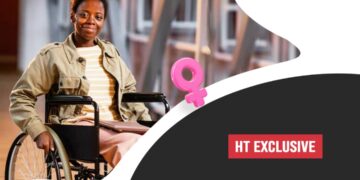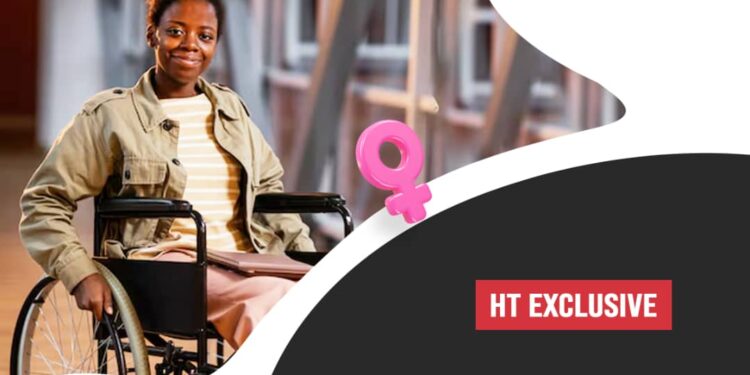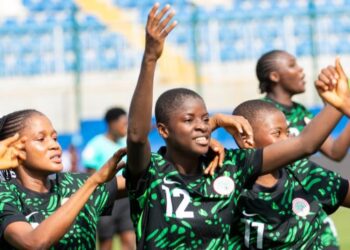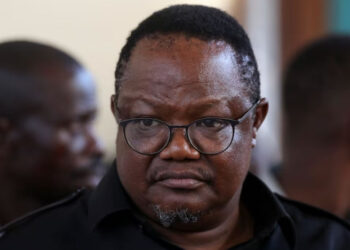By Ere-ebi Agedah Imisi
Despite significant global advancements in disability rights, societal attitudes toward Persons with Disabilities (PWDs) remain deeply entrenched in many communities. PWDs are often perceived through a lens of deficiency rather than capability, a stereotype that perpetuates exclusion and discrimination.
For women with disabilities, this marginalization is compounded by their vulnerability to gender-based violence (GBV). The intersection of gender and disability creates a double burden, leaving these women at a heightened risk of abuse while facing systemic barriers to justice and support.
Experts describe this intersection as a “double-edged sword,” where gender and disability discrimination intertwine, exposing women to physical, emotional, and psychological harm. The stigma surrounding disability often silences survivors, making it even harder for them to seek help or speak out against their abusers.
In light of this, the call to unite against GBV becomes even more urgent. Advocates stress that ending violence against women, particularly those with disabilities, requires collective action, stronger legal protections, and community awareness to challenge harmful stereotypes and ensure inclusivity in interventions.
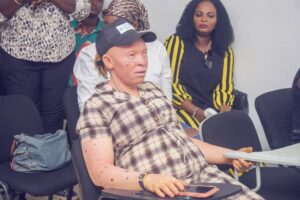
As the world observes campaigns like the 16 Days of Activism Against Gender-Based Violence, stakeholders are urged to amplify the voices of women with disabilities, ensuring they are part of the conversation and that their unique needs are addressed in policies and programs aimed at ending violence.
The fight against GBV is not just a women issue or a disability issue; it is a human rights imperative. The time to unite and act is now. The cycle of violence must be broken to create a more inclusive, equitable society where all women, regardless of ability.
This persistent stereotype highlights the urgent need for the media to lead the charge in reshaping perceptions. Through accurate, empathetic, and inclusive reporting, journalists can dismantle harmful narratives and spotlight the resilience and potential of PWDs.
The power of the press lies in its ability to influence minds and inspire action, making it a critical tool in advocating for a more inclusive society.
Without any doubt, the media plays a vital role in amplifying the voices and addressing the plight of Persons with Disabilities. By highlighting their stories, challenges, and achievements, the media fosters awareness and challenges societal stereotypes. Through empathetic reporting, journalists can humanize PWDs, portraying them as capable individuals with rights and aspirations rather than objects of pity.
This formed part of the basics of a one-day media parley hosted by Advocacy for Women With Disabilities Initiative (AWWDI) in Abuja. AWWDI, which is on a mission to change the false narrative surrounding PWDs, emphasized that the media holds an unparalleled power to shape perceptions, challenge stereotypes, and inspire change particularly when it comes to Women with Disabilities, PWDs.
Disability and Sexual Reproductive Health
One of the most pressing concerns discussed was the treatment of women with disabilities in medical settings. Participants at the parley agreed that healthcare professionals often lack the training or awareness to provide inclusive and respectful care. This oversight can lead to inadequate attention, negligence, or even outright discrimination.
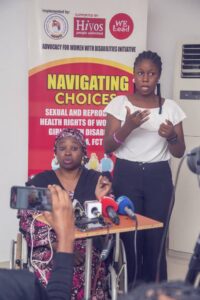
With the theme Sexual and Reproductive Health Rights of Women and Girls with Disabilities, National Coordinator of AWWDI, Miss. Bilikisu Yakubu lamented that healthcare professionals often treat women with disabilities with condescension or disregard, failing to recognize their humanity and specific needs.
She called for government intervention to ensure healthcare policies address these challenges, emphasizing that professional behavior from medical personnel is non-negotiable.
Yakubu stressed on the need for strong editorial reportage to disrupt this harmful narrative, adding that PWD deserve the right to access healthcare without bias or prejudice
“Women and girls with disabilities have the right to love and be loved because we have blood flowing through our veins.
“Healthcare providers must recognize that women with disabilities have sexual and reproductive health needs just like any other woman. They deserve to be treated with dignity and professionalism,” she said.
She shared heartbreaking accounts of women being denied care or being treated as though their disabilities defined their worth, underscoring the urgent need for reform urging journalists to champion inclusivity and respect in their reportage of PWDs.
Yakubu therefore urged the government to allocate more resources towards educating healthcare workers on disability inclusion and creating policies that guarantee accessible and respectful healthcare services.
“Every woman, regardless of her ability, has the right to access quality healthcare,” she emphasized.
Increasing Media Reportage
The media has long been a mirror to society, reflecting its values and ideologies. However, it also possesses the power to challenge and redefine these norms. Accurate language and inclusive narratives encourage public dialogue and influence policy reforms, ensuring that PWDs are represented fairly
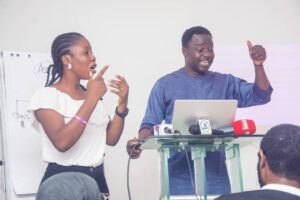
According to the AWWDI Program Manager, Mr Kola Jayeoba, over one billion people globally, are affected by disabilities, and their realities can only be adequately represented through disability-inclusive media coverage.
He emphasized that journalists play a crucial role in bringing issues faced by Persons with Disabilities to the forefront of government and policy discussions. By prioritizing empathy and inclusivity over sympathy, journalists can reshape public perceptions, ensuring PWDs are seen and valued as integral members of society.
Jayeoba urged the media to take the lead in driving this critical shift in narrative and advocacy, adding that inclusive media ensures equal representation and visibility for all.
During his presentation, Jayeoba guided participants through a series of slides illustrating the importance of language in shaping perceptions. ‘‘Words matter,” he said, adding that Journalists must adopt person-first language to promote dignity and respect.
He also emphasized the role of the media in creating an inclusive society. By sharing the stories of PWDs in a manner that highlights their achievements, struggles, and humanity, the media can break down harmful stereotypes and encourage policy changes.
Empathy, as opposed to sympathy, is the cornerstone of responsible journalism. Sympathy often paints PWDs as pitiable or helpless, perpetuating harmful narratives. In contrast, empathetic reporting focuses on understanding and communicating their lived experiences without diminishing their agency.
Journalists were encouraged to go beyond superficial stories that tug at heartstrings and instead delve into systemic issues that hinder PWDs’ access to rights and opportunities. For instance, reporting on the barriers women with disabilities face in accessing sexual and reproductive healthcare can spotlight gaps in policy and spur advocacy.
As the discussions wrapped up, one message was clear: the media must lead the charge in building an inclusive society. By telling stories that challenge stereotypes and highlighting the resilience and achievements of PWDs, journalists can inspire change and shift societal attitudes.
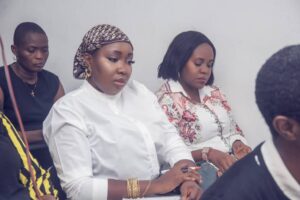
Journalists were urged to champion the use of correct language and terminologies when reporting on PWDs. This includes avoiding terms that reinforce stigma and instead using words that respect the dignity and humanity of the individuals involved.
In the words of Jayeoba, “The media is not just a storyteller; it’s a powerful agent of change. Let us use this platform to promote inclusion and equality for all.”
Call to Action
The media parley organized by AWWDI was more than just a conversation, it was a call to action. With the right approach to storytelling, the media can play a pivotal role in reshaping societal attitudes toward Persons with Disabilities. Empathy, professionalism, and the use of inclusive language are essential tools for this transformation.
The journey toward an inclusive society requires a collective effort. From healthcare providers to policymakers and journalists, everyone has a role to play in ensuring that women and girls with disabilities are not just seen but heard, respected, and valued, the time for change is now, and the media holds the key.
